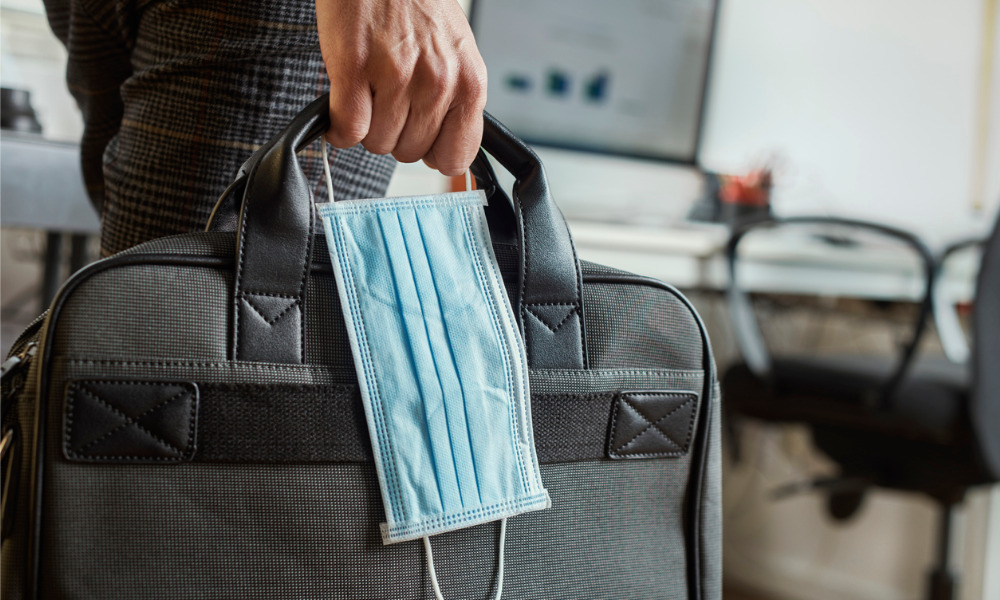If a contractor is displaying symptoms of COVID-19, can they be sent home without pay?

In light of the COVID-19 pandemic, there has been an overwhelming amount of information for employers and employees alike. Independent contractors, however, may feel as if they have been left behind. And they are not entirely wrong. There is not nearly as much information out there for independent contractors or for the organizations that engage them.
This blog post will answer five of the frequently asked questions we have received about independent contractors.
Q: Can an organization prevent an independent contractor from attending work due to concerns relating to COVID-19? If the contractor is displaying symptoms of COVID-19, can they be sent home without pay?
A: Organizations have an obligation to provide a safe workplace for their workers under the Occupational Health & Safety Act. Organizations should have clear policies and contracts in place which outline the parties’ rights and obligations. Organizations should also follow government guidelines as applicable to their unique workplaces in order to ensure safety.
Companies should not arbitrarily prevent an independent contractor from attending work due to concerns related to COVID-19. However, if the company has legitimate safety concerns (for example, the worker has symptoms of COVID-19), then the company may prevent the contractor from attending work. Companies should be mindful of the wording in the contract so that they do not inadvertently breach the contract (for example, the contract may stipulate that the independent contractor will be provided with a minimum number of hours of work in a given week or month). Companies should also consider other arrangements that would allow the contractor to work safely (such as remote work).
If a worker is displaying symptoms of COVID-19, then a company would likely be able to establish a legitimate safety concern and send the contractor home. There is generally no obligation to pay unless the contract specifies otherwise. The contractor may then be on unpaid leave, depending on the circumstances.
However, if there are no legitimate safety concerns, but the company wants to impose an unpaid leave on the contractor out of an abundance of caution that is not in line with the government or public health bodies’ guidelines, then the company may be at risk of liability.
Q: Can an independent contractor add remote working as a clause to their contract to protect their health and safety during COVID-19?
A: Yes, adding remote work clauses to contracts can allow contractors to ensure their rights are protected with respect to health and safety, and can also provide some certainty. Depending on the wording of the clause, it can be beneficial to both parties. It is crucial that contracts be drafted and implemented properly, otherwise, the paper is not going to be worth it.
Q: If an independent contractor within the workplace develops COVID-19, is the organization required to shut down the workplace?
A: Not necessarily. As is often the case, it will depend on the circumstances and all relevant factors. For example, if the contractor worked on a specific floor or section of the company, and likely came into contact with several other workers on that floor or section, then the company may only need to relieve those workers from work and close off that specific section.
Q: Can an organization end contracts for independent contractors due to the financial impact of COVID-19?
A: Yes, an organization can end the contract for almost any reason, but the question is, how much notice or pay will it have to provide the contractor? This will largely depend on whether or not there is an enforceable contract, and if so, the wording of any termination clause.
Notably, if an independent contractor is truly an employee or dependent contractor, despite the agreement referring to the worker as an independent contractor, then they may be entitled to significantly more compensation. You can read about the misclassification of employees as contractors here.
Q: What financial support is available to independent contractors who are unable to work due to COVID-19?
A: Independent contractors who have no work due to COVID-19 may be eligible for the Canada Emergency Response Benefit (CERB).
When submitting their first claim, they cannot have earned more than $1,000 in employment or self-employment income for 14 or more consecutive days within the four-week benefit period of their claim.
When submitting subsequent claims, they cannot have earned more than $1,000 in employment or self-employment income for the entire four-week benefit period of their new claim.
For example, if they receive more than $1,000 (before taxes) after March 15, 2020 for work done in February 2020, they may be eligible for the CERB, as long as the money they get is for work done outside the weeks in which they are applying for the CERB.
If they keep meeting the eligibility criteria, then they can receive the CERB for up to 24 weeks.





